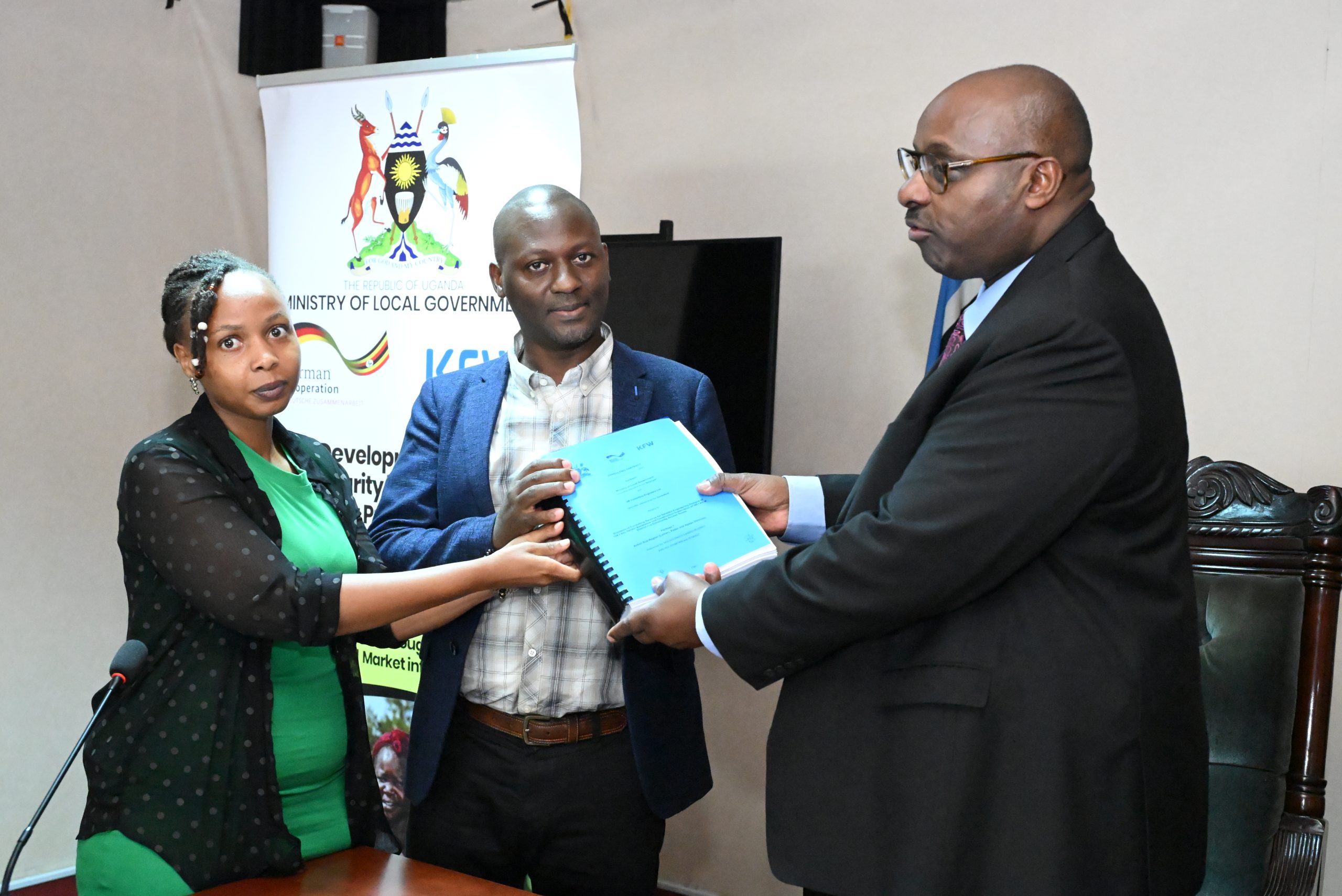By Adam Walusimbi and Gloria Kembabazi
In a move aimed at transforming rural infrastructure and enhancing agricultural productivity in Northern Uganda, the Ministry of Local Government (MoLG) has officially signed three major contracts to initiate the design and supervision of over 800 kilometers of community access roads. The initiative is part of the broader Rural Development and Food Security in Northern Uganda (RUDSEC) Project.
During a contract signing ceremony held at the MoLG headquarters in Kampala on April 30, 2025, the Permanent Secretary, Ben Kumumanya, formally awarded the contracts to three consulting firms: UB-Consulting Engineers, Kom Consult, and LEA Associates. The selected firms will oversee the planning and supervision of critical road works across the Acholi, Lango, and Teso sub-regions.
The contracts, worth a combined total of approximately Shs4.2 billion, are split into three geographic packages with package one (Acholi Sub-region) covering detailed engineering designs for 124.1km and supervision of construction works for 195.1 km in Acholi Subregion. Package two (Lango Sub-region) covers the design of 90.8 km and supervision of 132.2 km in Lango Subregion while package three covers design works for 109.5 km and construction supervision for 151.4 km in Teso subregion. This brings to a total of 803.1km to be worked on in this phase.
Kumumanya emphasized the importance of completing the work efficiently within the project timeline, which spans from 2023 to 2028, with no possibility for an extension.
“Time is of the essence to ensure that the project is implemented and achieves its objectives within the set timeframe. There will be no extension, as there will be no resources to cater for additional time,” Kumumanya stated.
The RUDSEC project is a result of a cooperation agreement between the Ugandan and German governments. The Ministry of Local Government is implementing the EUR32.1 million (Shs130.2 billion) project with support from the Ministry of Works and Transport on behalf of the government of Uganda. KfW is the implementing partner of Germany’s Federal Ministry for Economic Cooperation and Development (BMZ).
RUDSEC will unlock the agricultural potential and increase the income of smallholder farmers in Northern Uganda. This project will focus on improving road transport and market infrastructure to create better local economic opportunities.
The road construction and rehabilitation efforts will benefit nine districts: Lamwo, Pader, Agago, Lira, Dokolo, Oyam, Soroti, Serere, and Kaberamaido. In total, the RUDSEC project will rehabilitate and upgrade 1,327 kilometers of roads, focusing primarily on Community Access Roads (CARs) and District Roads.
In addition to the roads, the project will also support the development of key market infrastructure. Markets slated for rehabilitation and improvement include Amach, Minakulu, Katine, Pader Town Council, Aswa, Dokolo, Loro, Dakabela, Abone, Arum, Oliga, Padibe, Oriamo, and Kidetok Mulago.
“The project will employ climate resilience measures to ensure that the roads remain usable in all weather conditions, including heavy rains,” explained Eng Paul Kasule Mukasa, the Ministry of Local Government Projector Coordinator.
The RUDSEC Project is expected to directly benefit over 3,000 smallholder farmers by improving their access to markets, reducing transportation costs, and minimizing post-harvest losses. Moreover, the project is projected to create over 1,000 employment opportunities in construction, engineering design, and supervision roles.
This marks a promising step forward in the government’s efforts to promote inclusive rural development, boost regional food security, and improve livelihoods in some of Uganda’s most underserved areas.










